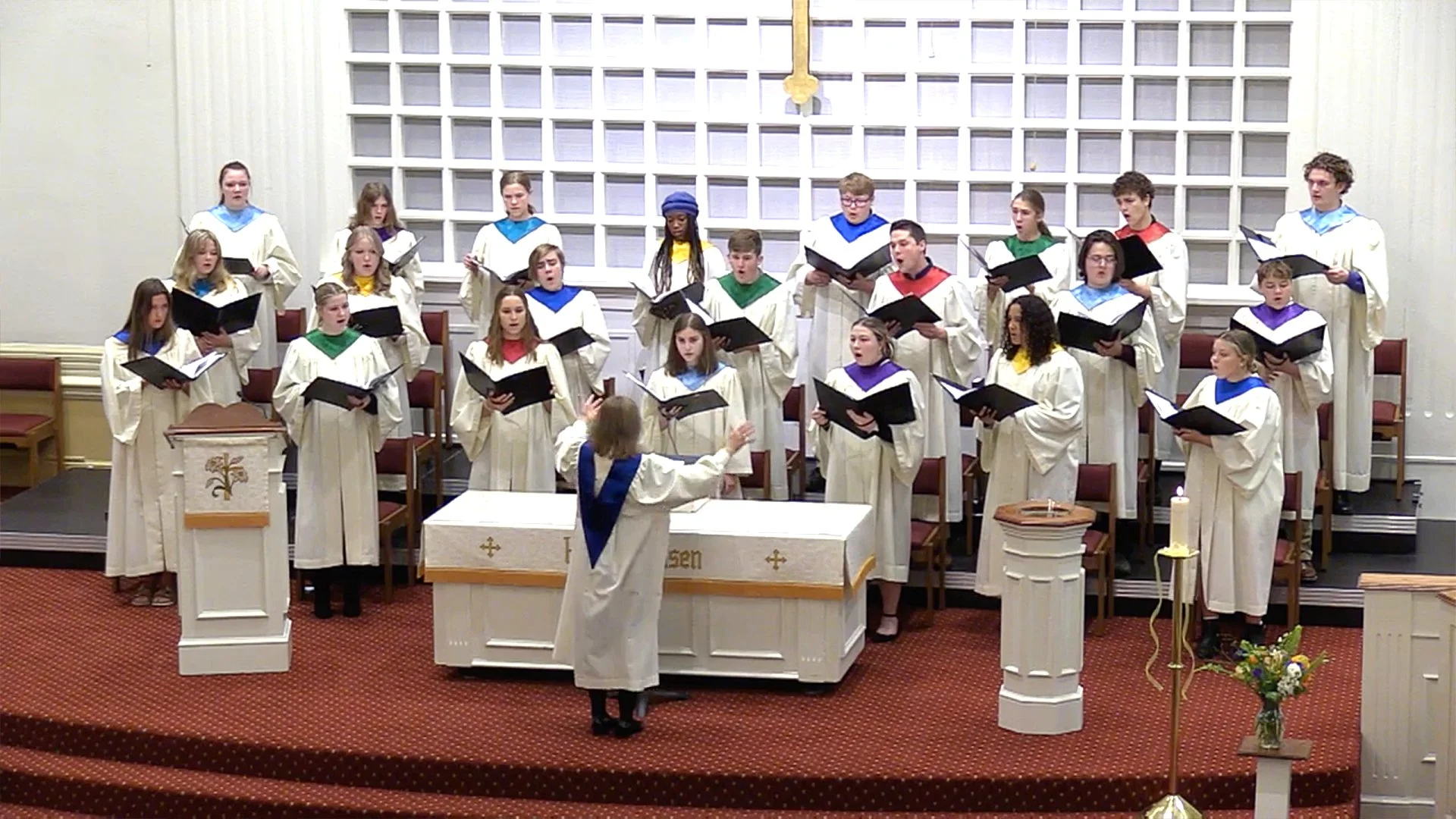Hymn of the Week: March 27, 2023
Joyful, Joyful, We Adore Thee
Glory to God: 611
Text. Henry Van Dyke 1907
Music Ludwig Van Beethoven 1824
Joyful, joyful, we adore thee,
God of glory, Lord of love!
Hearts unfold like flowers before thee,
opening to the sun above.
Melt the clouds of sin and sadness;
drive the dark of doubt away.
Giver of immortal gladness,
fill us with the light of day.
All thy works with joy surround thee;
earth and heaven reflect thy rays;
stars and angels sing around thee,
center of unbroken praise.
Field and forest, vale and mountain,
flowery meadow, flashing sea,
chanting bird and flowing fountain,
call us to rejoice in thee.
Mortals, join the happy chorus
which the morning stars began.
Love divine is reigning o'er us,
joining all in heaven's plan.
Ever singing, march we onward,
victors in the midst of strife.
Joyful music leads us sunward
in the triumph song of life.
Hearts Unfold like Flowers
It would be hard to imagine a day when the church didn’t regularly enjoy the hymn “Joyful, Joyful, We Adore Thee.” Our thanks belong to Henry van Dyke, a traveler, professor of literature at Princeton, poet, and renowned preacher for putting poignant words to the “mighty chorus” of the finale of Ludwig Van Beethoven’s Ninth Symphony, which has rightly been called “one of the most precedent-shattering and influential compositions in the history of music.”
Vessel for a Message
Its word-driven final movement is a declaration in favor of universal brotherhood, which explains why the Ninth is the work most often used to solemnize an important event – the opening of the United Nations, the signing of a peace treaty at the end of a war, the fall of the Berlin Wall. . .It is perceived as a vessel for a message that confers a quasi-religious yet nondenominational blessing on all “good” and “just” people, institutions and enterprises.
You don’t need a complex understanding of the nature of Jesus Christ or a mass of scriptural knowledge to join enthusiastically in this hymn. God has splayed God’s goodness and tender appeal to us all over creation for those who at least stop and look.
Van Dyke’s most eloquent image might be “Hearts unfold like flowers before Thee>”. Watch flowers. Don’t just glance at them. Give it some time. Flowers take time. They don’t sprout up in a jiffy. Gardeners understand that the cultivation and care of flowers requires patience, vigilance, and tenderness. The human heart yearns for a Lord and for faithful friends who are patient vigilant and tender. Flowers are fragile. That is their wonder. WE know that a gust of wind, a scurrying squirrel, or a hard rain might damage them. They are transient like us, and yet they are lovely. Lent is about our transient mortality – which is our beauty too.
Flowers Unfold
The bud gradually morphs, and then there’s an opening up, a revelation of the beauty that has been hidden until that moment. Jesus preached on a hillside and pointed to the flowers all around and said, “This is God’s tender care; this is God’s nature; this is God strewing beauty all over the place - and this God will care for you.” (Matthew 6:28-30). He wasn’t pointing to a finely manicured flower garden designed by a landscape architect. They were wildflowers popping up anywhere and everywhere. Like God’s grace. They were unfolding like the hearts of the people of God.
Flowers don’t seem to be trying hard. Effortlessly, they defy gravity and adorn even ugly, gray places. Their strength is under the ground, unseen, in the dark, where they reach down like the hungry soul for nourishment and ballast. Yet it's totally involuntary. Paul spoke of the “fruit of the Spirit,” a poignant, truth telling image. Fruit, like the flower, doesn’t grit its teeth and strives valiantly to row. Growth just happens to the fruit and to the flowers. The first fruit Paul names is Love, as it is the love of God that plants and nourishes flowers and our hearts. The second is Joy, which is what our hymn and Beethoven’s stunning Ninth Symphony are all about – and what they create as we are dazzled and moved. Hearing about our hearts unfolding opens up the heart to joy.
When we get to the second stanza, we find ourselves singing about the “flowery meadow.” The heart that flowers is not alone. Rarely do you see just a single flower, unless it’s been plucked by someone. Flowers grow together. Beethoven’s Ninth was composed during tumultuous days in the nineteenth century when nations couldn’t get along and people within nations loathed one another almost more than they loathed the other nations. This symphony has been called “a one-of-a-kind counterargument to the retrograde tendencies of the day.” Into such a culture of rancor, distrust, and division, Beethoven picked an old poem and set it to music that undeniably draws everyone in. The repeated refrain is “Alle Menschen warden Bruder”: All men become brothers. All people become siblings. We really are family.
English speaking choirs sing these words in German, giving the w in warden a v sound, and trying their darndest to do something that is resembling a Germanic sound with that daunting u umlaut, that ü. The noble, bumbling effort to speak in someone’s mother tongue, longing to be understood, hoping to be spoken to in reply: This is love, this is joy, this is hope. Beethoven’s declared goal when scribbling down all those notes and words was to “liberate mankind through art.” Perhaps that was God’s intention when in creation God thought I’ll throw in some flowers for good measure, to liberate my people, so their hearts will open up to me and to one another.
Videos
Two versions for Joyful, Joyful, We Adore Thee. One from Carrie Underwood and the other of Bernstein conducting Beethoven’s Ninth Symphony in 1989 when Berlin Wall came down.







